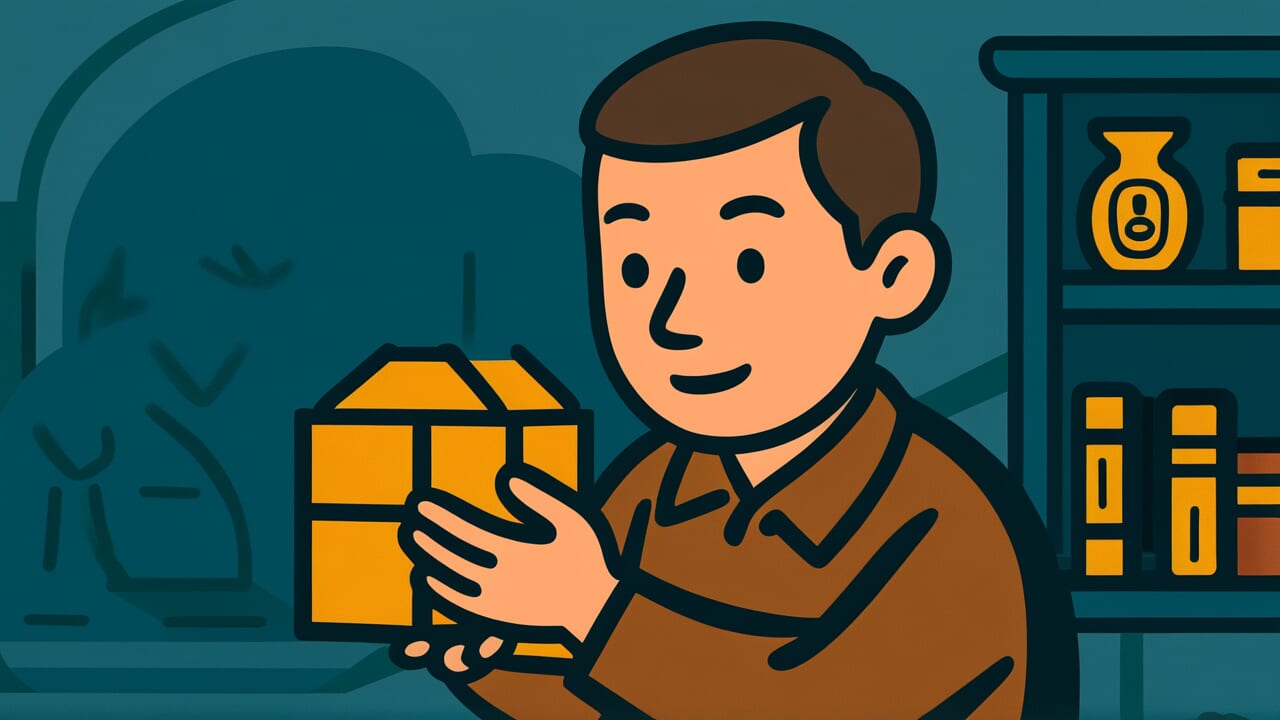How to Read “Patience is a lifelong treasure”
Kannin wa isshō no takara
Meaning of “Patience is a lifelong treasure”
This proverb means that controlling your anger and enduring difficulties becomes the most valuable asset in life. When you let momentary emotions take over and explode in anger, you often damage relationships, lose trust, and create regrettable outcomes.
However, if you have the power to hold back your anger in the moment, you can maintain smooth relationships and earn trust from those around you.
People use this proverb when facing situations that make them angry or when someone’s words or actions upset them. It’s also shared with young people as a life lesson.
Controlling anger isn’t easy, but those who can do it are truly strong. This proverb embodies the idea that such patience is a precious asset that money cannot buy.
Origin and Etymology
The word “kannin” is believed to come from Buddhist terminology. It’s a Chinese translation of the Sanskrit word “kshanti,” which originally meant “to endure” or “to persevere.”
In Buddhism, controlling anger is considered an important element of spiritual practice. Mahayana Buddhism includes “ninniku” (forbearance) as one of the Six Perfections. This teaching trains the mind by enduring insults and suffering.
This proverb became widespread among common people during the Edo period. Samurai culture valued emotional control as an important virtue. Town culture also emphasized the importance of controlling anger through expressions like “the string of the patience bag snaps.”
The phrase “lifelong treasure” reflects Japanese values that one’s state of mind, not visible wealth, becomes life’s greatest asset.
Our ancestors learned through experience how much damage comes from destroying relationships or losing trust over momentary emotions. They passed this wisdom to future generations through this proverb.
Interesting Facts
During the Edo period, merchant families had a custom of giving children who entered apprenticeships a “kannin-bukuro” or “patience bag.” This wasn’t an actual bag but an educational metaphor.
It helped children imagine a bag in their hearts that stored anger, teaching them not to express anger easily.
The word “kannin” is sometimes confused with “kanben” in modern times, but they were originally different words. “Kannin” refers to controlling your own emotions, while “kanben” means forgiving others.
However, historically these words were sometimes used with similar meanings. The boundary between them wasn’t always clear.
Usage Examples
- I stayed quiet back then, remembering that patience is a lifelong treasure, and thanks to that, we still have a good relationship today
- I got angry at my boss’s unreasonable words, but I reminded myself that patience is a lifelong treasure and took a deep breath
Universal Wisdom
Humans are emotional creatures. Anger especially surges up instantly and has tremendous power to blow away reason.
You’ve probably experienced this yourself. You snapped back or acted on anger, then later regretted it, thinking “I should have stayed quiet.”
This proverb has been passed down for hundreds of years because humans have repeated the same mistakes since ancient times.
Anger is an instinctive response needed to protect ourselves from danger. But in social life, it often becomes a blade that wounds ourselves.
Our ancestors witnessed repeatedly how a moment of anger destroys trust built over years, causes the loss of important people, and leads to irreversible consequences.
What’s interesting is that this proverb doesn’t tell you to eliminate anger. Feeling angry is natural for humans.
However, it teaches that having the power to “control” or “endure” anger is true strength in life and becomes a treasure.
This proverb contains deep human understanding. People who can control emotions rather than be controlled by them can live richer lives.
When AI Hears This
When you analyze patience mathematically, surprising rationality emerges. In political scientist Axelrod’s prisoner’s dilemma tournament, the winner that defeated complex strategies one after another was “tit-for-tat,” written in just four lines of code.
The core of this strategy is “cooperate first, retaliate if the opponent betrays, but forgive immediately when they return to cooperation.”
The timing of forgiveness is crucial here. A strategy that retaliates forever against betrayal actually creates a vicious cycle where both parties lose.
Mathematical calculations show that the benefits gained from one betrayal are far smaller than the losses from the collapsed cooperative relationship afterward. In other words, patience isn’t about suppressing emotions but a cold calculation to maximize long-term benefits.
Even more interesting are the conditions where this strategy works. In one-time relationships, betrayal pays off, but in repeated interactions, cooperation becomes rational.
In environments like Edo-period village society where you interact with the same people for life, patience was mathematically the correct choice.
Even today, this logic holds completely in workplaces, communities, and other places where relationships continue repeatedly. From a probability perspective, destroying relationships over momentary anger is overwhelmingly disadvantageous.
Lessons for Today
Modern society has become an environment where expressing anger is easy. On social media, you can vent frustrations anonymously. You can easily complain about services too.
But precisely because of this, the teaching of this proverb becomes even more important.
This proverb teaches us the difference between emotional reactions and wise responses. When you receive unfair treatment at work or get angry over disagreements with family, develop the habit of pausing instead of reacting immediately.
In those few seconds or minutes, your reason starts working. You gain space to think, “What happens to the relationship if I yell now?” or “Can we solve this by talking calmly?”
The power of patience is strength, not weakness. People who can control themselves without being swept by emotions are truly mature adults.
Once you acquire this power, it continues to help you in every aspect of life. It protects relationships, builds trust, and enables choices without regret.
It truly becomes a lifelong treasure.



Comments